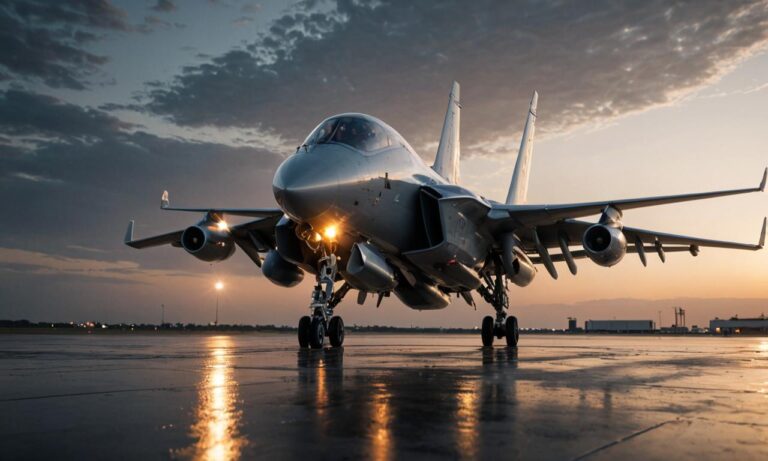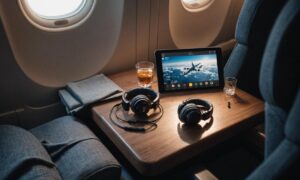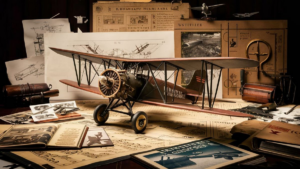In the ever-evolving landscape of aviation, the retirement of iconic aircraft like the Boeing 747 sparks curiosity about what will fill their sizable shoes. The Boeing 747, fondly dubbed the “Queen of the Skies,” has been a symbol of long-haul air travel for decades. However, with advancements in technology and shifting market demands, the aviation industry is witnessing a transition towards more efficient, modern alternatives.
The Rise of Twin-Engine Widebody Jets
One notable contender stepping into the spotlight as a replacement for the Boeing 747 is the newer generation of twin-engine widebody jets. Aircraft such as the Boeing 777X and the Airbus A350 are gaining prominence for their fuel efficiency, range, and passenger comfort. These modern marvels offer airlines a compelling combination of capacity and economic viability, making them ideal successors to the 747.
Boeing 777X: Redefining Long-Haul Travel
The Boeing 777X, a next-generation variant of the highly successful Boeing 777 series, stands out as a frontrunner in the race to replace the Boeing 747. With its innovative design, including folding wingtips for airport compatibility and advanced engines for enhanced performance, the 777X promises to revolutionize long-haul travel. Its spacious cabin and cutting-edge amenities ensure a superior passenger experience while maintaining operational efficiency.
Airbus A350: Setting New Standards
On the Airbus front, the A350 has emerged as a formidable competitor in the widebody segment. Boasting composite materials for weight reduction, state-of-the-art aerodynamics, and fuel-efficient engines, the A350 offers airlines a compelling alternative to the Boeing 747. Its sleek design and focus on passenger comfort make it an attractive choice for both airlines and travelers alike.
The Evolution of Ultra-Long-Range Aircraft
Besides twin-engine widebodies, another trend reshaping the aviation landscape is the emergence of ultra-long-range aircraft. These planes are designed to connect distant destinations without the need for traditional hub-and-spoke routes, thereby offering airlines greater flexibility and opening up new market opportunities.
Boeing 787 Dreamliner: Connecting the World
The Boeing 787 Dreamliner, renowned for its fuel efficiency and passenger-centric features, is at the forefront of this evolution. With variants like the 787-9 and 787-10 offering extended range capabilities, airlines can now serve previously unreachable destinations profitably. The Dreamliner’s composite construction, advanced systems, and spacious interiors make it a versatile choice for airlines seeking to replace aging fleets like the Boeing 747.
Airbus A321XLR: Redefining Transatlantic Travel
For airlines looking for a more nimble yet capable option, the Airbus A321XLR presents an intriguing solution. Building upon the success of the A320 family, the A321XLR offers extended range capabilities, enabling airlines to operate transatlantic routes efficiently. Its narrow-body design coupled with impressive range makes it a viable alternative for airlines seeking to phase out larger aircraft like the Boeing 747.
The Shift Towards Sustainable Aviation
Amid growing concerns about environmental sustainability, the aviation industry is also witnessing a shift towards greener technologies and alternative fuels. This transition is driving the development of more eco-friendly aircraft, which are poised to replace older, less efficient models like the Boeing 747.
Electric and Hybrid Aircraft
Companies like Airbus and Boeing are investing heavily in research and development to bring electric and hybrid aircraft to market. These innovative aircraft promise significant reductions in emissions and operating costs, making them attractive options for airlines seeking to future-proof their fleets. While still in the early stages of development, electric and hybrid aircraft hold immense potential to reshape the future of aviation and replace aging giants like the Boeing 747.
In conclusion, the retirement of the Boeing 747 marks the end of an era in aviation history, but it also heralds the dawn of a new chapter filled with innovation and progress. Twin-engine widebodies, ultra-long-range aircraft, and sustainable aviation technologies are poised to replace the 747 and usher in a new era of efficient, environmentally friendly air travel.
Efficiency and Environmental Concerns
Efficiency and environmental sustainability are becoming paramount considerations in the aviation industry, driving the development of new technologies and operational strategies.
Advanced Materials and Aerodynamics
Manufacturers are increasingly utilizing advanced materials like composites and investing in aerodynamic research to improve fuel efficiency and reduce carbon footprint across their aircraft fleets.
Alternative Fuel Solutions
Exploring alternative fuel solutions such as biofuels and sustainable aviation fuels (SAFs) is gaining traction as a means to mitigate the environmental impact of air travel and reduce dependence on fossil fuels.
Frequently Asked Questions
| Question | Answer |
|---|---|
| What are some key factors driving the replacement of the Boeing 747? | The replacement of the Boeing 747 is primarily driven by advancements in technology, shifting market demands towards efficiency and sustainability, and the emergence of newer, more fuel-efficient aircraft models. |
| How do twin-engine widebody jets contribute to the replacement of the Boeing 747? | Twin-engine widebody jets such as the Boeing 777X and the Airbus A350 offer improved fuel efficiency, longer range capabilities, and enhanced passenger comfort compared to the Boeing 747, making them attractive alternatives for airlines. |
| What role do ultra-long-range aircraft play in replacing the Boeing 747? | Ultra-long-range aircraft like the Boeing 787 Dreamliner and the Airbus A321XLR enable airlines to connect distant destinations efficiently, reducing the need for traditional hub-and-spoke routes and offering greater flexibility in route planning. |
| How is the aviation industry addressing environmental concerns in the context of replacing the Boeing 747? | The aviation industry is investing in research and development of greener technologies, including electric and hybrid aircraft, as well as exploring alternative fuel solutions to mitigate the environmental impact of air travel. |
See also:






